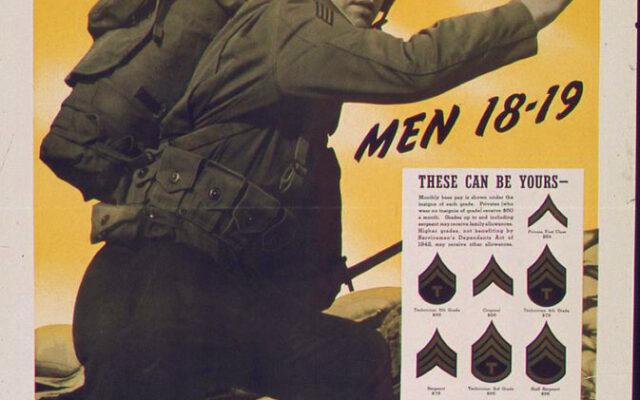In the early 1970s, Texas ranchers TH Johnson and Kenneth Henry set up a work programme. It took young men with learning disabilities from Texas “institutions for the developmentally disabled” and trained them to process turkeys. Groups of these men were then sent around the country to work in various turkey-processing plants on behalf of Johnson’s and Henry’s company, Henry’s Turkey Service (HTS).
In 1974, about a dozen of the men were taken by truck from Goldthwaite, Texas, to live in an old schoolhouse in Atalissa, Iowa. They would be joined by around 20 others. Every morning at 3am, the men rose to be driven to the turkey-processing plant in nearby West Liberty. Here they would do some of the most unpleasant and arduous jobs in the plant: extracting live turkeys from crates, hanging them by their feet to be slaughtered, then rehanging the carcasses and eviscerating them.
Overall, Atalissans welcomed the men they referred to as the “boys”. They regularly attended the local church, kept the minimart going with their frequent custom and participated in the annual Atalissa Day parade. At the plant, they were generally respected for their skill and work ethic.
There were some early signs that all was not well: Albert Busby ran away from the schoolhouse in heavy snow, his body only discovered months later; and a 1979 investigation by the Des Moines Register accused HTS of exploiting the men. However, Atalissans observed that the “boys” always appeared clean and well dressed and never once complained.
Abusive new managers
No one employed to supervise the men received any specialised training in working with people with learning disabilities.
This included local couple Randy and Dru Neubauer, who were appointed in the mid-1990s. Although Randy Neubauer exhibited physically and verbally abusive behaviour towards the men – actions that got him banned from the plant itself by owner West Liberty Foods – HTS later made the Neubauers sole onsite managers at the schoolhouse.

Their regime of coercion and control involved punishments such as being denied television or trips to the local food market, or physical penalties such as being made to walk around carrying heavy weights. One man was handcuffed to his bed overnight. After decades of slaving in the turkey plant, many of the “boys” were in their 60s. A phased retirement began. Before leaving, they had to train up their nondisabled replacements at the plant.
HTS had always been paid directly for the men’s services. Using a loophole in the 1938 Fair Standards Act that enabled employers to pay below the minimum wage to staff with a disability, HTS siphoned off money from the men’s earnings and social security benefits for room and board, and in kind services such as meals out or annual trips. This left the men with a wage of $65 a month, a figure that did not change in all the decades they worked for HTS, despite the advances in disability rights in the world outside Atalissa.
When Sherri Brown discovered that the life savings of her brother Keith totalled $80 despite decades of intense physical work for HTS, she called various state departments and eventually a journalist at the Des Moines Register. In 2009, the schoolhouse was raided and found to be awash with cockroaches, rodent faeces and mould. It was immediately declared uninhabitable by the state fire marshal.
The men themselves were in physically poor health, with malformed hands from their gruesome, repetitive work, dental woes, uncut toenails that curved back into their feet and long fingernails stained with turkey blood. They were taken to a nearby motel, assigned social workers and eventually put in the hands of Exceptional Persons Inc, a non-profit body that supports people with disabilities, who would help them start afresh.
Profound injustice
Robert Canino from the Dallas office of the Equal Employment Opportunity Commission took on the case. The jury were so moved by the profound injustice and the emotional harm they felt the men had suffered that they awarded them $7.5 million each, a total of $240 million.
Although this was swiftly reduced to $1.6 million due to a federal cap on penalties for small businesses, the case had a far-reaching impact. It raised awareness at every level of government of the potential abuse of learning-disabled people within employment institutions, and of the need to stay vigilant.
Nevertheless, in 2016 the brother of one of the “boys” was tracked to Newberry, South Carolina, working for ex-HTS employee Joseph Paul Byrd in an identical operation. Byrd was found to be charging his learning-disabled staff far more in rent than their non-disabled counterparts, cashing their pay cheques but passing on only a small weekly allowance, and subjecting them to verbal abuse.
As for the men of Atalissa, Henry refused to pay their compensation, claiming they had “conned” people. At the time of his death in 2016, Henry was facing $5.9 millions worth of court judgments and administrative penalties. It is only in very recent years that money is finally being redistributed to former employees.
Read and watch
The Men of Atalissa. Documentary. New York Times. 8 March 2014. https://tinyurl.com/ yyu4pcu2
Barry C. The “boys” in the bunkhouse: toil, abuse and endurance in the heartland. New York Times. 9 March 2014. https://tinyurl.com/yaw3e7fu
Kauffman C. Echoes of Atalissa: federal agency sues bunkhouse owner for exploiting mentally disabled workers. Des Moines Register. 12 November 2017. https://tinyurl.com/yy6mosh6





